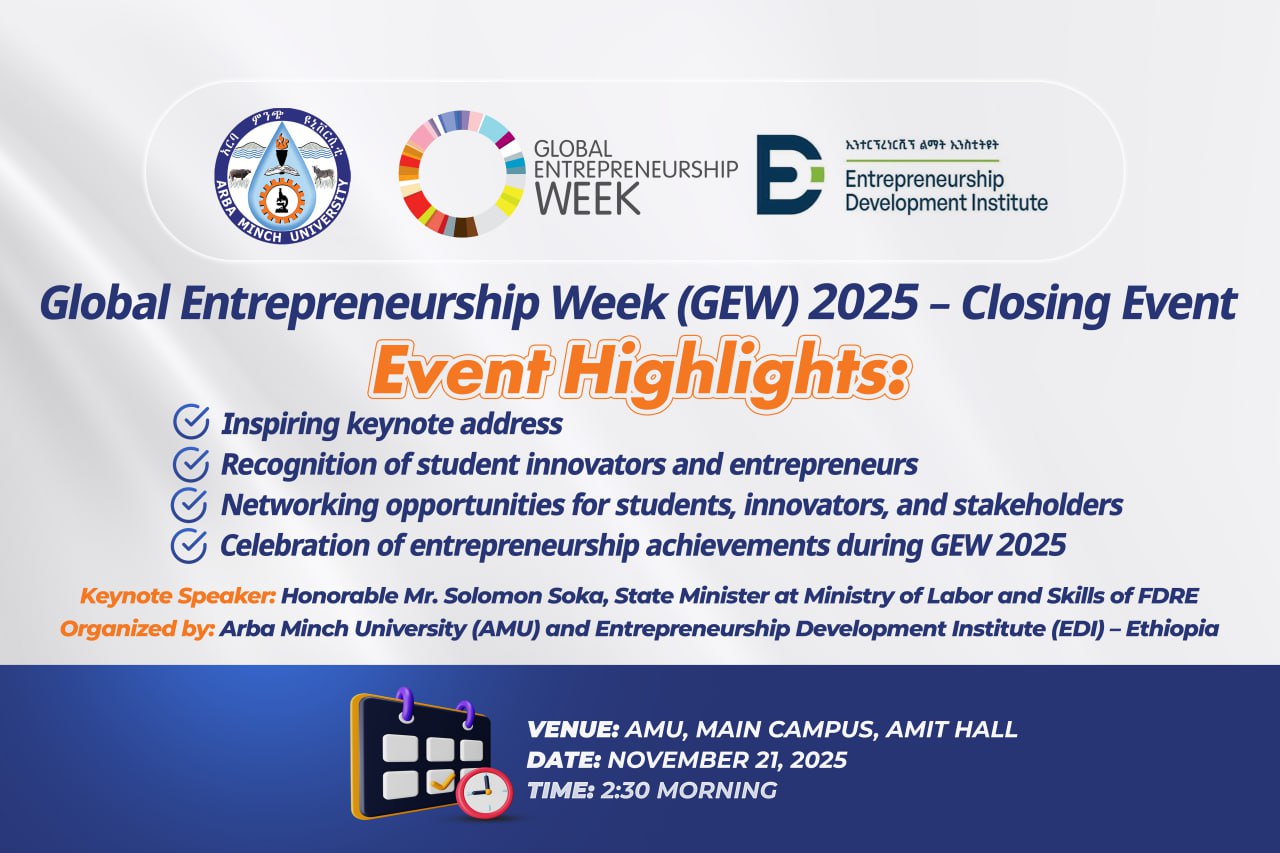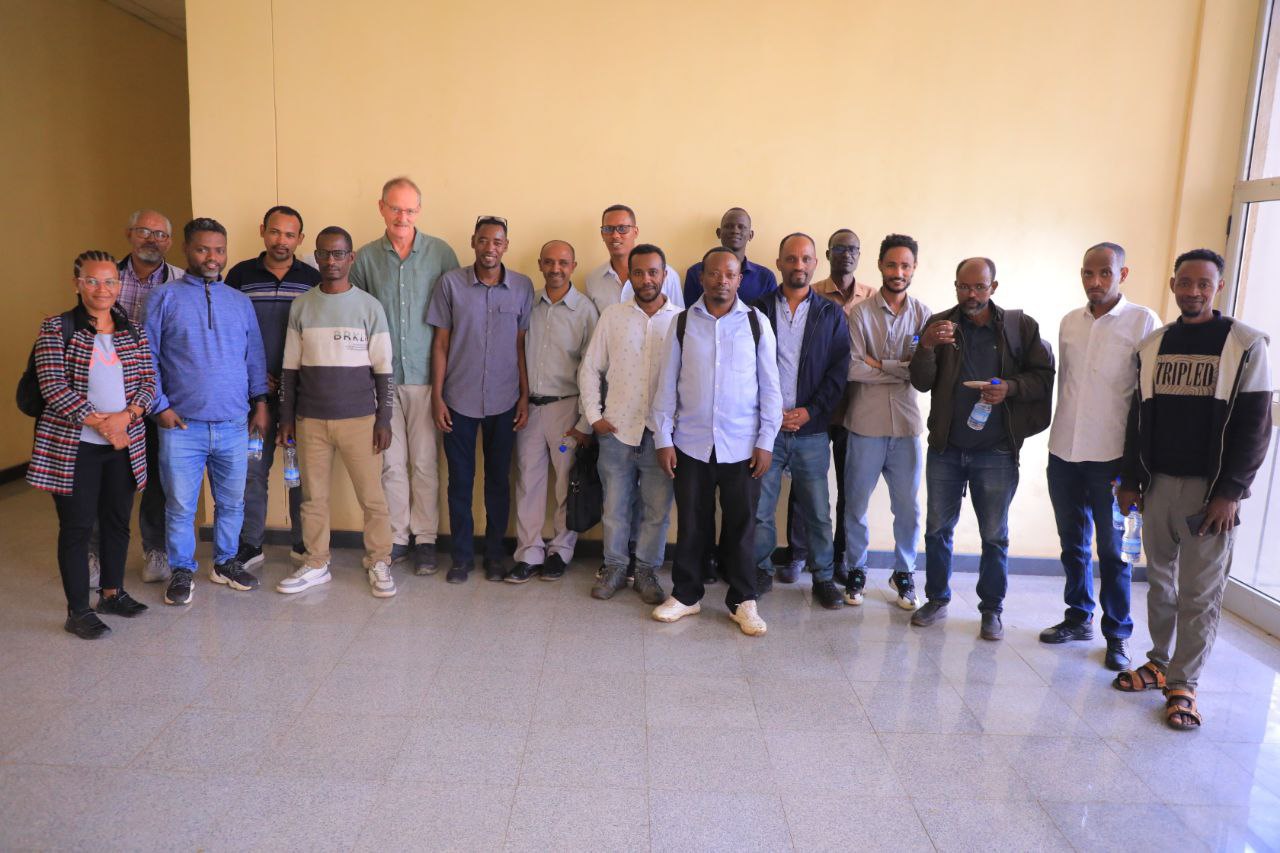Arba Minch University (AMU) hosted a seminar on "The Legacy of N2Africa: Putting Nitrogen Fixation to Work for Smallholder Farmers in Africa," on October 17, 2025 at Abaya Campus. Experts, researchers, and stakeholders gathered to share and discuss together to enhance the initiative that has directly impacted the livelihoods of hundreds of thousands. Click here to see more photos.
Dr. Ashenafi Hailu, Director for the Grant and Collaborative Projects Management Office, underscored the project's significance for agricultural development across the continent. This legacy of N2Africa reminds us that empowering smallholder farmers through science can drive meaningful change, he stated. The seminar's role in fostering ongoing collaboration between AMU, Wageningen University in the Netherlands, and other key partners, Dr. Ashenafi highlighted. Rhizobiology work at AMU is the continuation of N2Africa Project that will look future networking and collaborations, he remarked.
Professor Ken Giller, an internationally renowned expert on smallholder farming systems from Wageningen University and the principal scientist behind the N2Africa project, during his seminar addressing, said, funded primarily by the Bill & Melinda Gates Foundation, N2Africa is a large-scale "research-in-development" project focused on harnessing biological nitrogen fixation for African smallholder farmers growing legume crops.
Professor Giller explained that legumes like common beans, soybeans, and chickpeas form a symbiotic relationship with rhizobium bacteria to convert atmospheric nitrogen into a natural fertilizer; hence, the process not only enhances soil fertility but also improves household nutrition and increases farmers' incomes. A central theme of N2Africa project is the evolution from proposing generic "best-bet" solutions to developing tailored "best-fit" practices, he noted. According Professor Giller, research shows that tailored management practices often override other factors; consequently, N2Africa conducted extensive on-farm testing with thousands of farmers to adapt technologies to specific local conditions, ensuring accessible options for all.
The project's impact extends far beyond agronomy due to N2Africa’s built, powerful legacy by empowering women and other stakeholders in developing future leaders, and strengthening markets. N2Africa Project educated over 100 MSc and PhD candidates within partner countries. Next, the Project is facilitating public-private partnerships to improve access to inputs and output markets, ensuring women smallholder farmers at center of project activities. Since its launch, the project reached over 600,000 smallholder farmers with improved legume technologies, simultaneously boosting local economies by creating demand for seeds and inoculants.
The seminar concluded with a dynamic discussion on scaling up these technologies for both resource-rich and resource-poor farmers. Participants reinforced the value of nitrogen-fixing legumes as flexible, "best-fit" solutions. The event culminated in a unified call for ongoing research, innovation, and policy support to systematically address Africa's soil fertility challenges and build on the solid foundation laid by the N2Africa.
For more Information Follow us on:-
Website - https://www.amu.edu.et/
Telegram - https://t.me/arbaminch_university
Facebook - https://www.facebook.com/ArbaMinchUniversityccd/
YouTube - https://www.youtube.com/channel/UCOO_nclhMo8M3r74OyPBlVA
Public and International Relations Executive


